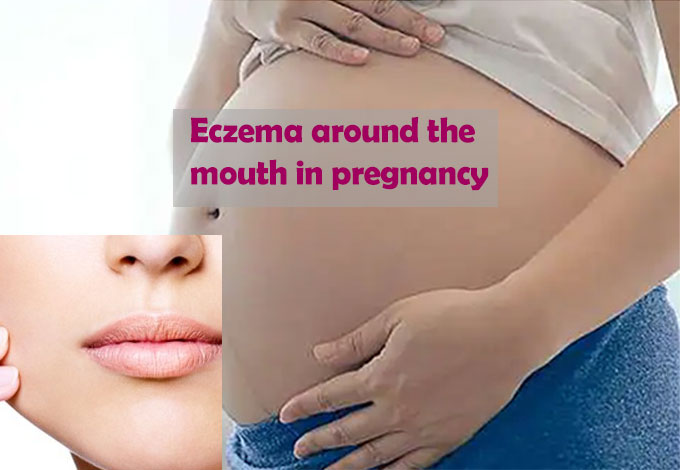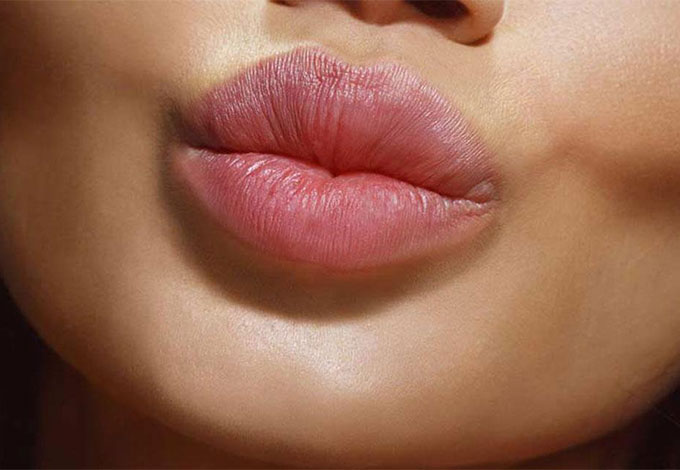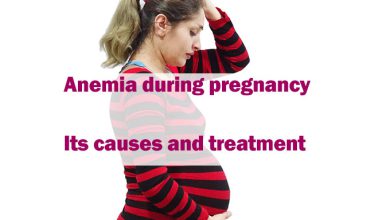Eczema around the mouth in pregnancy

Pregnancy can cause many changes to a woman’s skin, such as spots, acne, hives, skin sensitivity, excess oil or dryness, or pregnancy eczema. Pregnancy hormones are responsible for these changes in the body which affect the physiology of the body.
Eczema in pregnancy is a type of skin condition that many women experience during pregnancy. Eczema around the mouth falls into this category and occurs in both women who have previously experienced eczema and those who have never had eczema.
Related posts: How much vitamin B1 or thiamine do you need during pregnancy?
Why do pregnant women get eczema?
Eczema during pregnancy is the most common type of skin complication during this period, to the extent that more than half of eczema patients are pregnant. Some doctors claim that eczema is caused by a malfunction of the body’s immune system or autoimmune disorders.
In many cases, the root of eczema around the mouth is thought to be the Fusobacterium bacteria in the body. If you have experienced eczema, you may experience it again during pregnancy.

Eczema, also known as atopic dermatitis, can affect the lips of pregnant women. Eczema around the mouth is mostly seen as red, raised, scaly, itchy patches (of course, it doesn’t hurt to know that eczema around the lips in adults occurs almost exclusively in women).
This eczema causes the mouth area to become dry and scaly and may be accompanied by discharge. About 20-40% of women who get eczema during pregnancy have already experienced this condition before.
Eczema around the lips for pregnant women
Most of the time, eczema around the lips can be controlled with ointments or emollients. If this eczema is severe, your doctor and dermatologist may prescribe a steroid ointment.
These ointments are completely safe for pregnancy, but it’s best to explain your condition to your doctor before using them. Of course, there is also evidence of using ultraviolet light therapy to get rid of eczema.
You can reduce or prevent eczema symptoms by doing the following:
- Take a lukewarm shower instead of hot water. High heat aggravates eczema.
- Keep the skin around your lips soft with the conditioner.
- After bathing, apply conditioner or balm to your lips.
- Do not apply allergenic creams or cosmetics to your skin and do not wear clothing that could come into contact with your face.
- Use scented soaps or chemical cleaners.
- If you live in a dry city, put an incense burner in your house.
- Drink plenty of water throughout the day. Water will not only help your body and your baby’s health, but it will also make eczema symptoms disappear sooner.
Diagnosing eczema during pregnancy
A doctor can diagnose lip eczema just by looking at your face, but sometimes a biopsy may be needed to diagnose this condition. Tell your doctor about the changes you feel in your body so your eczema is not mistaken for acne, hives, or other types of skin problems.
Also, tell the doctor about the history of the disease and the medicines you are taking so that the medicines for treating eczema do not interfere and do not harm you or your child.
How do you treat perioral dermatitis when pregnant?
Here are some strategies for managing atopic dermatitis during pregnancy :
- Ask about topical steroids and antihistamines
- Stay away from triggers.
- Avoids scented products.
- Limit your soaking.
- Check your vitamin D.
- Stay cool.
- Be careful with cleaners.
Can pregnancy cause eczema on the face?
Can pregnancy cause a rash around the mouth?
Is it common to get eczema when pregnant?
Conclusion
To conclude, eczema around the mouth during pregnancy can be a challenging condition to manage, as hormonal changes and other factors can contribute to skin irritation and inflammation.
However, there are several steps that pregnant individuals can take to reduce symptoms and promote healing. These include avoiding triggers such as certain foods or skin care products, using gentle cleansers and moisturizers, and seeking medical treatment when necessary. Additionally, practicing good self-care habits such as staying hydrated and getting enough rest can help support overall skin health.
By taking a proactive approach to managing eczema around the mouth during pregnancy, individuals can minimize discomfort and promote healthy skin for both themselves and their developing baby.
